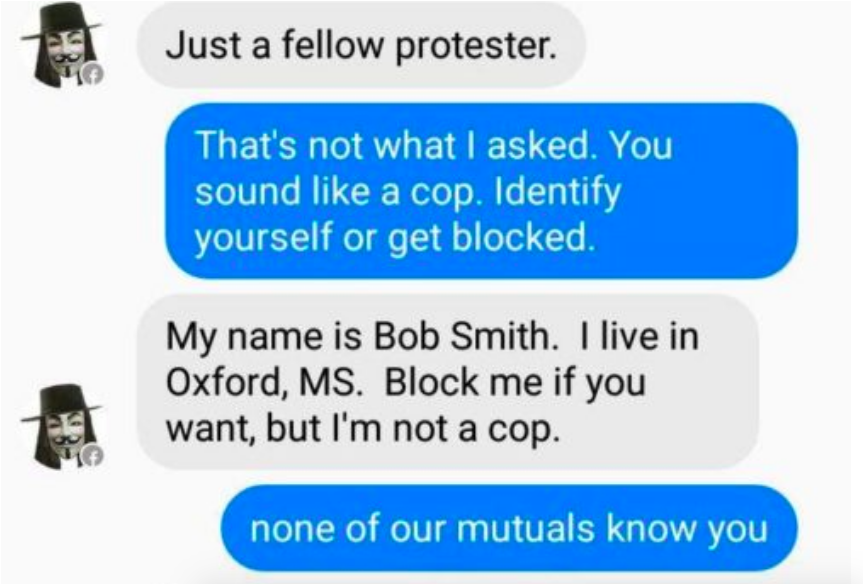I live in Memphis, just like Bob Smith, and even though we’ve never met I happen to know a lot about him. I know, based on his Facebook likes, that he’s a supporter of the Black Lives Matter movement; of Bernie Sanders; of the Mid-South Peace and Justice Center here in town; and of comedian Rickey Smiley. The reason I’ve never met him, though, is not because he’s one person in this city of around 1 million people. It’s because he doesn’t exist.
Rather, the online persona doesn’t exist, but the police officer behind it very much does. It’s a fake profile that was created by the Memphis Police Department to ‘friend’ and keep tabs on BLM activists, a disclosure that was revealed as part of legal action against the police department here. News accounts about that revelation were how Facebook itself found out about the practice, and why the company in recent days sent a letter to the city’s police chief directly warning him — stop doing that.

“We regard this activity as a breach of Facebook’s terms and policies, and as such we have disabled the fake accounts that we identified in our investigation,” reads a letter from Andrea Kirkpatrick, Facebook’s director and associate general counsel. It was sent to Memphis Police Director Michael Rallings.
“Disabled” was a reference to the social networking giant apparently deactivating a total of seven Facebook profiles related to this effort. “We request that the (Memphis) police department, its members, and any others acting on its behalf cease all activities on Facebook that involve impersonation or that otherwise violate our policies,” Andrea’s letter continues.
According to the Electronic Frontier Foundation, this episode out of Memphis appears to have spurred Facebook to update its “Information for Law Enforcement Authorities” page to make it clear that the company’s misrepresentation policy also applies to police. That policy reads, in part:
“People on Facebook are required to use the name they go by in everyday life and must not maintain multiple accounts. Operating fake accounts, pretending to be someone else, or otherwise misrepresenting your authentic identity is not allowed, and we will act on violating accounts.”
Here’s the full letter Facebook sent to the Memphis police chief. The efforts of Memphis police stem from the department’s aggressive tracking of protests over nationwide police shootings and related acts. Presumably, this won’t stop law enforcement from continuing to use social media platforms to track people — they’ll just more clever about it.








